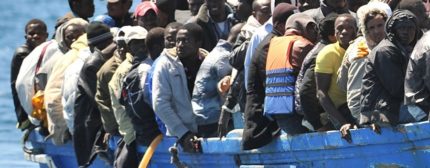With order increasingly breaking down in Syria on a daily basis, the world’s attention has turned to the efforts of Syrian officials and soldiers to defect, after Syrian Prime Minister Riyad Hijab successfully fled to Jordan over the weekend with his family. Because it was a priority of President Bashar al-Assad and his forces from the start of the uprising to squelch defections, it has been particularly difficult for high level officials to leave. From statements to the media, a complicated plot to get the prime minister and his family out of Syria began to unfold.
Hijab needed the help of rebels who are fighting Assad’s forces in order to get dozens of his family members out of Syria and beyond the reach of Assad’s military.
The rebels were able to assist in moving Hijab’s family and the families of his seven brothers and two sisters to safety. If they weren’t moved, they almost surely would have been killed by Assad’s forces, according to observers. This is the threat that Assad has used to keep defections to a minimum.
“Today I tell you there are 10 families, praise be to God, all of them are well, who have reached safety in a secure area and who are now in excellent health,” Hijab’s spokesman, Mohamed Atari, said in a broadcast on Al Jazeera television from Jordan.
“They and their children have reached a secure place,” he said. He gave no details of the operation.
According to Hosam Hafez, a Syrian diplomat who defected last month from Syria’s diplomatic mission in Armenia, brutal treatment of defectors’ families was a deterrent from early in the uprising.
“They killed most of the family of Hussein Harmoush, the first officer to defect. Dozens of people were killed,” he told Reuters.
While thousands of soldiers have crossed over to the rebels in the past year, joined their ranks, including more than 20 generals. But high level civilian defections have been rare.
Hafez said six or seven Syrian diplomats had defected so far despite foreign ministry efforts to restrict their movement, while others are still waiting to seize their chance.
“The policy of our ministry was to recall a big number of diplomats back to Syria,” he said. “Usually we have 350 to 400 diplomats outside, now I guess we have much less than half this number in the missions outside.”


